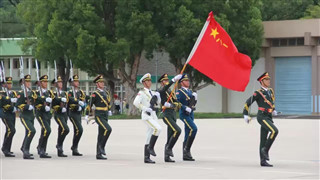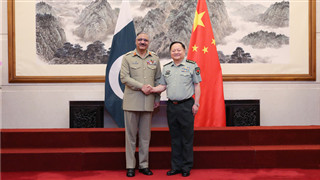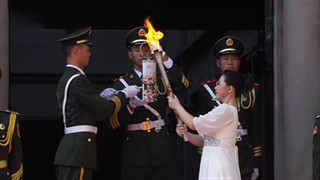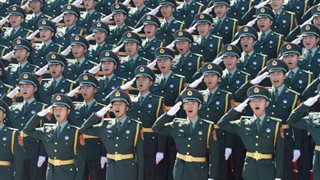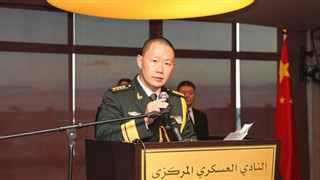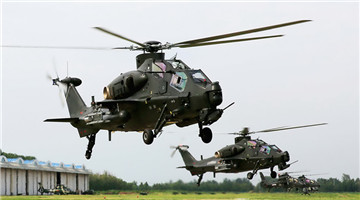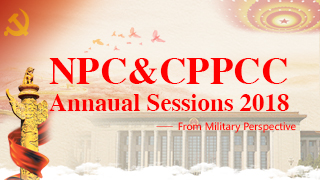By Fu Bo
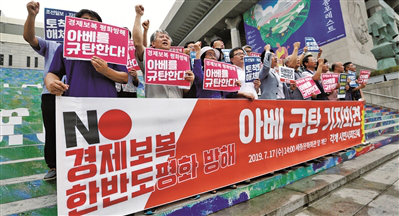
ROK folks have launched a number of large-scale anti-Japan demonstrations.
Recently, the relationship between the Republic of Korea (ROK) and Japan has become increasingly intensified and the dispute between the two sides have escalated in every aspect around the ROK’s court rulings ordering Japanese compensation for wartime forced laborers and on the issue of “comfort women”during the Second World War (WWII). The US,who usually tends to exercise "long-arm jurisdiction", has chosen to "play it cool" facing its two estranged allies.
The US chooses to stand by and watch
After its dispute with Japan escalates, the ROK immediately sought mediation from the US, an important ally, as US President Donald Trump publicly stated that President Moon Jae-in had asked him to mediate the ROK-Japan relations.
In response to the appeal from the ROK, the US offers only token mediation. President Trump once announced that if the Japanese side also has such arequest, the US would be willing to mediate. The US Department of State also stated that it is particularly important for the US, the ROK and Japan to work together closely to address regional issues, including the nuclear issue on the Korean Peninsula. T David Stilwell, assistant secretary of the US State Department for East Asian and Pacific Affairs, said during his visit to Seoul on July 17, "United States is a close friend and ally to both. We will do what we can to support their efforts to resolve disputes."
However, the truth is that the US is now only an onlooker of the ROK-Japan dispute. During his visit to the ROK, Stilwell said that the US would take Japan-ROK trade disputes seriously, but did not elaborate on what measures the US intends to take, while clearly stating that the US would not intervene in the current conflicts between Japan and the ROK. President Donald Trump's National Security Adviser John Bolton mentioned during his visit to Japan on July 22 that the US had no intention of mediating the dispute between Japan and the ROK. On July 24, Bolton spoke of the issue of Japan-ROK relations when he met with some high-level officials, including ROK’s foreign minister and defense minister. He believed that the two countries should settle their differences through dialogue, but again did not show any sign of mediation towards the ROK-Japan disputes.
Confrontation may intensify
Judging from the current situation, there are mysteries surrounding both the escalation of the ROK-Japan dispute and the aloof attitude of the US. The escalation of the ROK-Japan dispute is the first large-scale confrontation between the two countries in the economic and trade field since the normalization of the bilateral relations in 1965, and Japan is targeting ROK’s chip and panel display industries, which rank the very first across the world.
There is one more thing worth noting. The economic and trade frictions are only external manifestations of the bilateral disputes. An underlying reason is the extreme hostility and serious lack of trust between Japan and the ROK since the WWII, due to historical issues, territorial disputes and other frictions. At present, small frictions or conflicts between the two sides in a certain field may lead to tensions in relations between the two countries and a comprehensive escalation of dispute.
As an important contributor to the normalization of the Japan-ROK relations, the US has always played the role of "lubricant" since the Cold War. US choice to back off facing the escalation of the bilateral disputes is a concentrated expression of the Trump administration’s “America First” strategy, indicating that the US is reluctant to intervene in the contradiction between its allies without its own major interests involved.
In the words of Hira Smith, an expert for Japan studies at the Council on Foreign Relations (CFR), a US think tank, the Trump administration has little interest at present and no plans to reconcile the Japan-ROK relations. The political and diplomatic circles of Japan and the ROK may also lose interest in the US’ mediation. Most importantly, the rancor between Japan and the ROK has run deep. The US is not the one who started the escalation of the bilateral dispute, nor can itbecome the one to end their animosity.
Since the Japanese government has not shown willingness to reconcile so far, the current nationalist sentiment in the ROK is still high. The US is also not willing to be a "mediator" between the two sides. Therefore, the Japan-ROK disputes may escalate further in the future, most likely expanding from politics and economy to other fields. Some South Korean media believed that this "unprecedented crisis" may catalyze "the beginning of the Japanese policy shift", and the Japan-ROK relations may face even more grave challenges in the future.
In addition to the possible negative impact on the Japan-ROK relations, the overall escalation of the disputes between Japan and the ROK may also have an impact on the regional security situation. On one hand, the Japan-ROK economic and trade frictions may have certain impact on economic security in Northeast Asia, especially on the development of the high-tech industry. On the other hand, the hostile relations between Japan and the ROK are bound to exert greater influence on the US-Japan-ROK trilateral alliance system, and the US’ so-called "Indo-Pacific Strategy" may not be carried out smoothly.

